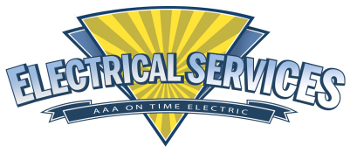
786-487-7441
Commercial / Residential Electrical Services
LICENSE # 13002896

786-487-7441
Commercial / Residential Electrical Services
LICENSE # 13002896
Contractor related problems can be averted by doing just a little research. After fifteen year in the trade, I have found that if both home and business owners follow these tips, they almost always have a pleasant experience:
Check the license. Never hire an unlicensed contractor or electrician in any capacity. It may look like a good deal, but it may end up costing you more than extra money in the end. Unlicensed contractors are not bonded and have not taken any kind of exam to be assured they have the knowledge to perform the type of work you may need done. Also, it is very unlikely they have liability insurance (more on that below).
Check for insurance coverage. By law, Hawaii licensed electrical contractors will have liability insurance coverage. The bond that is required for electrical contractors in Florida is generally $ 6500 – an extremely limited amount. Look for an insurance policy of at least $1 Million.
Ask for a Journeyman card for proof of license. All electricians are required by law to be a journeyman, having passed all Florida State requirements. Ask to see the card of anyone performing electrical work on your home or business. This is very important and makes sure you have qualified workers. Your persons and property are at risk if they are unlicensed.
Ask what kind of work the electrician has done in the past. It is usually a pretty good indication of what you should expect in the future.
Are you planning to remodel your home? This checklist will help you make sure you’ve done everything you need to do for your project. Check off each item when they’re complete.
Get three written estimates for the job.
Verify the licenses of all contractors and subcontractors with DCCA Call (808) 587-3222.
Check prior complaints history for all contractors and subcontractors with DCCA.
Ask contractor for references.
Request a list of subcontractors to be used.
Draw up a written contract.
Read the entire contract and understand all the terms and conditions.
Purchase performance, material and completion bonds through the contractor.
Obtain the appropriate building permits.
See and understand any plans and blueprints before approving them.
Periodically check on the progress of the work .
Get lien releases from subcontractors and material supplies.
Keep copies of all documents and correspondence.
Publish a notice of completion in the newspaper once the job is done.
Do you have an electrical repair or a project you’re moving forward on, or you’re wanting to improve the look of your home or business? Will you do it yourself, hire a handyman, or hire a qualified electrician?
Because of the rising costs of our island’s economic environment, many are looking for ways to cut costs when it comes to electrical repairs or additions. One way people are doing this is through their own attempts or choose someone who claims to be a qualified electrician working as a “handyman”. The current economy has left many skilled tradespersons unemployed and eager to offer their expertise as a handyman repair worker.
A “handyman” might be able to do the electrical job you have or they might not. How are you to know? Much of the work performed in an electrical project is covered up by walls, wire junction boxes, or in limited access locations. I’ve seen bad connections where the previous installer has connected wires using gift wrapping tape or paper clips or some other household items. Also, wires that carry high voltage were cut, pinched, and fully exposed to a shock or fire hazard (see above picture). The owners knew nothing about this! Following the electrical codes didn’t seem to be a priority in these attempts. Codes need to be met or there’s a huge liability to persons and property.
Electrical wiring can be very dangerous! A handyman may have some electrical talent, but they are not recognized by the law as a licensed contractor. In other words, in Hawaii, they cannot pull permits on jobs where they are required or legally work on projects that earn $1000.00 or more for their services. The State knows the dangers of unlicensed work. They are not just looking for other means for revenue. If you hire someone who is unlicensed to save money, then you are taking a huge risk. If something goes wrong, you have very little recourse. You could end up paying more in the end.
electrical services fl not only is licensed, but insured and bonded. The State requires this for good reason….. The State of Hawaii has a fund for you that all licensed contractors pay into called the “Contractor’s Recovery Fund”. The purpose of the fund is to provide reimbursement to a consumer who has suffered a financial loss as a result of a licensed electrical contractor who has engaged in fraudulent, deceptive or dishonest practices, or failed to perform. Injured parties my collect funds to recover damages. Any unlicensed person can not offer you this protection.